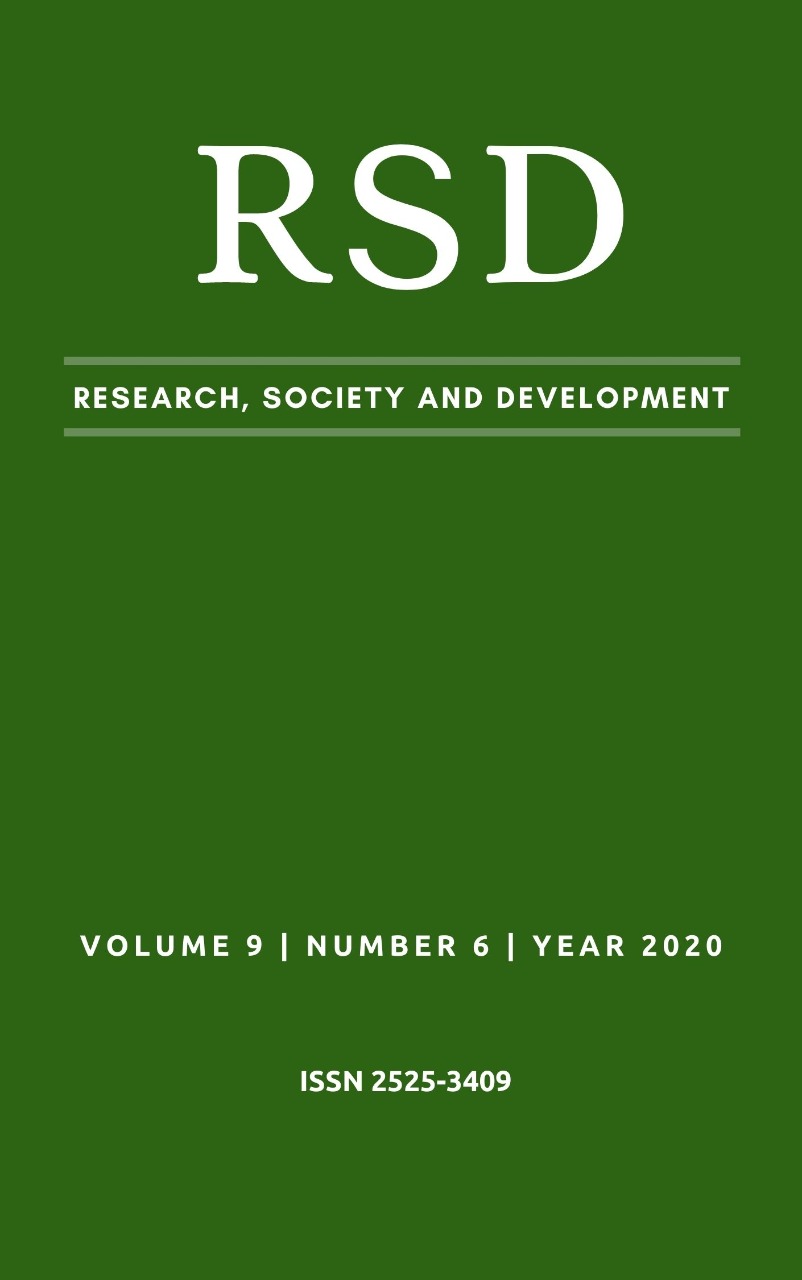Intervenções obstétricas durante o processo parturitivo: percepções de puérperas
DOI:
https://doi.org/10.33448/rsd-v9i6.3515Palavras-chave:
Saúde da mulher; Enfermagem obstétrica; Humanização da assistência.Resumo
O estudo objetivou conhecer as percepções de puérperas acerca das intervenções obstétricas vivenciadas durante o processo parturitivo. Trata-se de uma pesquisa qualitativa, realizada com 14 puérperas atendidas em Estratégias Saúde da Família da área urbana de um município da fronteira oeste do Rio Grande do Sul, Brasil. A geração de dados ocorreu por meio de entrevistas semiestruturadas. Os dados foram analisados conforme a proposta operativa de Minayo. A pesquisa seguiu os preceitos éticos de investigações com seres humanos. O processo parturitivo foi vivenciado de forma negativa devido à exposição a situações indesejadas e de caráter agressivo, impostas por meio de ações dos profissionais da saúde, o que pode ser caracterizado como violência obstétrica. Essa violência pode ser evidenciada pela manobra de Kristeller, uso do fórceps e realização de episiotomia, sem consentimento ou conhecimento por parte das mulheres. As práticas comprovadamente úteis no parto ainda são pouco implementadas, enquanto que outras prejudiciais ou ineficazes continuam sendo realizadas.Referências
Alexandria, S. T. et al. (2019). La violencia obstétrica bajo la perspectiva de los profesionales de enfermería involucrados en la asistencia al parto. Cultura de los cuidados, 23(53), 119-128.
Brasil. (2018). Ministério da Saúde. Caderneta da gestante. 4ª edição. Brasília: Ministério da Saúde. 56p.
Brasil. (2012). Ministério da Saúde. Conselho Nacional de Saúde. Diretrizes e normas regulamentadoras de pesquisas envolvendo seres humanos. Resolução Nº 466, de 12 de dezembro de 2012. Brasília: Ministério da Saúde, 2016.
Brüggemann, O. M., Ebele, R. R., Ebsen, E. S. & Batista, B. D. In vaginal and cesarean deliveries, a companion is not allowed in the room: discourses of nurses and technical directors. Revista Gaúcha de Enfermagem, 36(esp), 151-158.
Chattopadhyay, S., Mishra, A. & Jacob, S. (2018). Safe', yet violent? Women's experiences with obstetric violence during hospital births in rural Northeast India. Culture Health & Sexuality, 20(7), 815-829.
Corrêa, M. S. M., Feliciano, K. V. O., Pedrosa, E. N. & Souza, A. I. (2017). Acolhimento no cuidado à saúde da mulher no puerpério. Cadernos de saúde pública, 33(3), e00136215.
Dodou, H. D., Rodrigues, D. P. & Oriá, M. O. B. (2017). The care of women in the context of maternity: challenges and ways to humanize. Revista Online de Pesquisa Cuidado é Fundamental, 9(1), 222-230.
Guimarães, N. N. A. et al. (2018). Analysis of factors associated with the practice of episiotomy. Revista de Enfermagem da UFPE on line, 12(4), 1046-1053.
Melo, B. M. et al. (2017). Implementação das boas práticas na atenção ao parto em maternidade de referência. Revista da Rede de Enfermagem do Nordeste,18(3), 376-382.
Minayo, M. C. S. (2014). O desafio do conhecimento: pesquisa qualitativa em saúde. 14ª ed. São Paulo: Hucitec.
Minayo, M. C. S. (2017). Amostragem e saturação em pesquisa qualitativa: consensos e controvérsias. Revista Pesquisa Qualitativa., 5(7), 01-12.
Oliveira, V. J. & Penna, C. M. M. (2017). Discussing obstetric violence through the voices of women and health professionals. Texto & Contexto Enfermagem, 26(2), e06500015.
Reis, T. L. R. et al. (2017). Women’s autonomy in the process of labour and childbirth: integrative literature review. Revista Gaúcha de Enfermagem, 38(1), e64677.
Silva, R. M. et al. (2016). Complementary and integrative practices by doulas in maternities in Fortaleza (CE) and Campinas (SP), Brazil. Saúde e Sociedade, 25(1), 108-120.
Strefling, I. S. S. et al. (2017). Perceptions of puerperas on nursing care in joint accommodation. Revista Online de Pesquisa Cuidado é Fundamental, 9(2), 333-339
United Nations General Assembly (UNGA). (2015). Transforming our world: the 2030 Agenda for Sustainable Development. New York: UNGA. 41p.
Vargens, O. M. C., Silva, A. C. V. & Progianti, J. M. (2017). The contribution of nurse midwives to consolidating humanized childbirth in maternity hospitals in Rio de Janeiro-Brazil. Escola Anna Nery Revista de Enfermagem, 21(1), e20170015.
World Health Organization (WHO). (2018). WHO recommendations: intrapartum care for a positive childbirth experience. Geneva: WHO. 210 p.
Downloads
Publicado
Como Citar
Edição
Seção
Licença
Autores que publicam nesta revista concordam com os seguintes termos:
1) Autores mantém os direitos autorais e concedem à revista o direito de primeira publicação, com o trabalho simultaneamente licenciado sob a Licença Creative Commons Attribution que permite o compartilhamento do trabalho com reconhecimento da autoria e publicação inicial nesta revista.
2) Autores têm autorização para assumir contratos adicionais separadamente, para distribuição não-exclusiva da versão do trabalho publicada nesta revista (ex.: publicar em repositório institucional ou como capítulo de livro), com reconhecimento de autoria e publicação inicial nesta revista.
3) Autores têm permissão e são estimulados a publicar e distribuir seu trabalho online (ex.: em repositórios institucionais ou na sua página pessoal) a qualquer ponto antes ou durante o processo editorial, já que isso pode gerar alterações produtivas, bem como aumentar o impacto e a citação do trabalho publicado.

